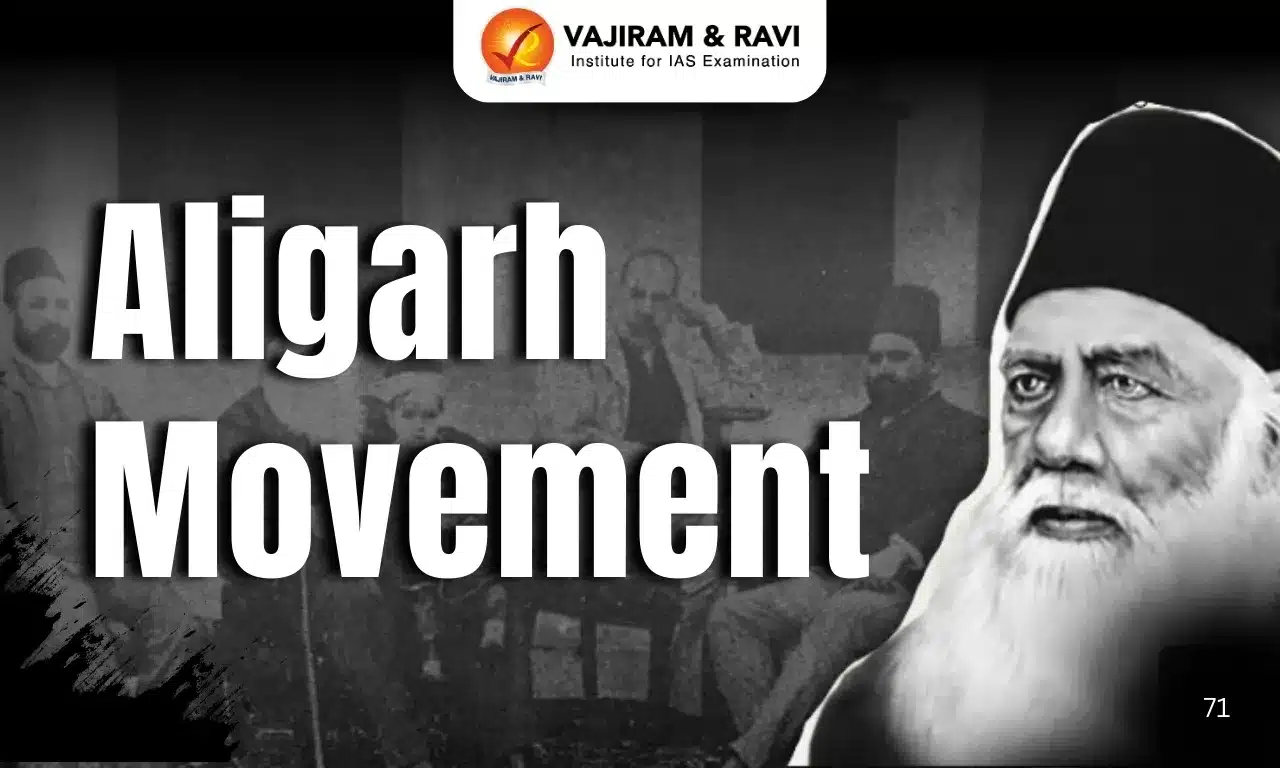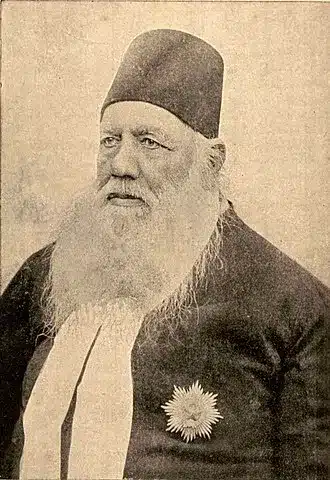Aligarh Movement, initiated by Sir Syed Ahmad Khan in the late 19th century, aimed to uplift the Muslim community in India by promoting intellectual, educational, and social reforms. After the 1857 Sepoy Mutiny, Muslims faced a significant decline in education and social standing, which Sir Syed sought to address through modern education and cultural regeneration.
Sir Syed established the Muhammadan Anglo-Oriental College in Aligarh, which became the center of the movement, advocating for modern education while preserving Islamic values. This Muslim renaissance movement has profound implications for the culture, society, politics, and religion of the Indian subcontinent.
Aligarh Movement Background
Aligarh Movement, initiated by Sir Syed Ahmad Khan, focused on the intellectual, educational, social, and cultural regeneration of the Muslim community in India. Following the failure of the Sepoy Mutiny in 1857, which led to the end of Mughal rule and the establishment of direct British control over India, Muslim society found itself in a declining condition during the post-mutiny period.
- Sir Syed Ahmad Khan observed that Muslims were lagging in education, social standing, and cultural development, attributing this to the inadequate education system.
- To address these issues, he established a school in Aligarh, which became the centre of the Aligarh Movement.
- The movement introduced a fresh approach to Urdu literature, as Sir Syed moved away from the traditional rhetorical style of writing.
- He opted for a simpler style that was more accessible to the Muslim population. This shift was crucial in helping Muslims understand the goals of the Aligarh Movement.
Aligarh Movement Founder
Sir Syed Ahmad Khan, who founded the Aligarh Movement in 1875, was a 19th-century Indian Muslim scholar and reformer. Born in a Muslim family, he served in the British judicial system. After retiring in 1876, he joined the Imperial Legislative Council in 1878, earning a knighthood in 1888 for his loyalty. Sir Syed sought to blend Western education with Islamic teachings, advocating for a rational, adaptable interpretation of the Quran and religion.
- He emphasized that religious principles must evolve to stay relevant. As an educationist, Sir Syed opened schools, translated books into Urdu, and founded the Mohammedan Anglo-Oriental College in Aligarh in 1875.
- Though initially promoting Hindu-Muslim unity, he later shifted towards focusing on Muslim interests, unintentionally aligning with the British divide-and-rule strategy.
Aligarh Movement Reasons
During the Aligarh Movement, Muslims in India were experiencing social and economic decline. They lagged in education, struggled with limited employment opportunities, and faced widespread discrimination. Sir Syed Ahmad Khan attributed much of this backwardness to the outdated education system, which he believed was failing to meet the needs of Indian Muslims.
- Sir Syed advocated for the essential unity of religions, promoting a concept he called "practical morality."
- He emphasized the shared interests of Hindus and Muslims while prioritizing education and employment for the Muslim community.
- He believed that political involvement at that time could be detrimental to Muslims.
- His progressive social ideas were disseminated through his magazine Tahdhib-ul-Akhlaq (Improvement of Manners and Morals).
Aligarh Movement Objectives
Aligarh Movement was a movement of Muslim intellectuals based in Mohammedan Anglo-Oriental College, Aligarh, aimed to modernize and reform Muslim society in India. The Aligarh Movement had the following objectives:
- Promoting modern education for Muslims while preserving the Islamic faith.
- Advocating for social reforms, including women's education and the abolition of polygamy and purdah.
- Developing a distinct Muslim socio-cultural identity aligned with modern principles.
Aligarh Movement Opposition
The primary critics of the Aligarh Movement were the conservative Ulemas, who accused Sir Syed Ahmad Khan of promoting Western values and practices among Muslims. The Deoband school also opposed the movement. Notable critics like Pandit Ratan Nath Sarshar, Munshi Sajjad Hussain, and Akbar Allahabadi openly mocked Sir Syed and his movement in the satirical publication Awadh Punch.
- Additionally, Sir Syed faced opposition from Jamal al-Din al-Afghani, a leading Pan-Islamist thinker and activist, who also disapproved of his approach.
Aligarh Movement Impact
The Aligarh Movement significantly contributed to the political emancipation of Indian Muslims in the 19th century. Its influence extended beyond the Muslim community, impacting Indian society as a whole. Compared to other contemporary movements, the Aligarh Movement's adaptability and effectiveness were notable.
- Aligarh Movement inspired numerous other Socio-religious reform movements, including the Urdu Movement, the Khilafat Movement, and the Pakistan Movement.
- The movement's impact was not limited to Northern India but spread across the Indian subcontinent.
- The Aligarh Movement had a significant impact on the development of education and institutions within the Muslim community. One of its key strategies was the organization of educational conferences.
The success of these conferences led to the establishment of several important educational institutions, including Aligarh Muslim University, Osmania University, Dacca University, Anjuman-i-Tarqqi Urdu, Jamia Millia Islamia, Dar-ul-Uloom Nadva, Lucknow, and Dar-ul-Musannfafin, Azamgarh.
Last updated on March, 2026
→ UPSC Notification 2026 is now out on the official website at upsconline.nic.in.
→ UPSC IFoS Notification 2026 is now out on the official website at upsconline.nic.in.
→ UPSC Calendar 2026 has been released.
→ UPSC Final Result 2025 is expected to be released soon.
→ Check out the latest UPSC Syllabus 2026 here.
→ Join Vajiram & Ravi’s Interview Guidance Programme for expert help to crack your final UPSC stage.
→ UPSC Mains Result 2025 is now out.
→ UPSC Prelims 2026 will be conducted on 24th May, 2026 & UPSC Mains 2026 will be conducted on 21st August 2026.
→ The UPSC Selection Process is of 3 stages-Prelims, Mains and Interview.
→ Prepare effectively with Vajiram & Ravi’s UPSC Prelims Test Series 2026 featuring full-length mock tests, detailed solutions, and performance analysis.
→ Enroll in Vajiram & Ravi’s UPSC Mains Test Series 2026 for structured answer writing practice, expert evaluation, and exam-oriented feedback.
→ Join Vajiram & Ravi’s Best UPSC Mentorship Program for personalized guidance, strategy planning, and one-to-one support from experienced mentors.
→ Check UPSC Marksheet 2024 Here.
→ UPSC Toppers List 2024 is released now. Shakti Dubey is UPSC AIR 1 2024 Topper.
→ Also check Best UPSC Coaching in India
Aligarh Movement FAQs
Q1. Who started the Aligarh Movement?+
Q2. What was the aim of the Aligarh Movement?+
Q3. Who opposed the Aligarh Movement?+
Q4. Who is the founder of AMU?+
Q5. What are the principles of the Aligarh movement?+















